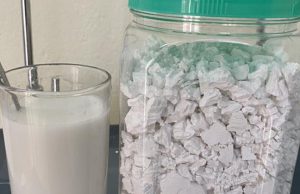
Ticks, despite their small size, are highly hardy parasites capable of transmitting deadly diseases that can damage both humans and animals. Their ability to attach to the skin and feed on blood makes them a silent enemy, as their existence is frequently overlooked until they have spread serious diseases such as Lyme disease, Rocky Mountain spotted fever, or anaplasmosis.
Characteristics and habitat of ticks
These arachnids have an oval shape and short legs designed for adhering to their hosts. Their hue ranges from light brown to black, and their size, which is equivalent to that of a sesame seed, can grow significantly when fed.

- Wooded areas and rural trails.
- Tall or overgrown grass.
- Areas with accumulation of dry leaves.
- Places where wild or domestic animals pass through.
Hazards to human and animal health
A tick bite doesn’t just cause local irritation or redness. In many cases, they spread serious diseases that can have long-term consequences if not treated promptly. The most popular ones include:
- Lyme disease : causes fever, fatigue, joint pain, and neurological problems.
- Spotted fever : characterized by high fever, rash, and circulatory complications.
- Anaplasmosis and babesiosis : infections that can harshly affect the immune system.
Effective prevention strategies

Prevention is major factor to easing the risk of infection. The following are suggested:
- Wear light-colored, long-sleeved clothing and pants tucked into socks when walking through tall vegetation.
- Apply repellents containing DEET or icaridin, both on your skin and clothing.
- Thoroughly examine your body, scalp, and clothing after being outdoors.
- Scan and brush pets before they enter the home.
- Maintain the garden clean, the grass short, and get rid of any accumulation of leaves or weeds.
What to do if a tick bites you
If you spot a tick attached to your skin:
- Apply fine forceps to grasp it as close to the skin surface as possible.
- Get rid of it with a firm, straight motion, avoiding crushing it.
- Clean the area with soap and water and apply disinfectant.
- Control your health over the next few weeks and find out medical attention if you experience fever, rash, or muscle pain.


















